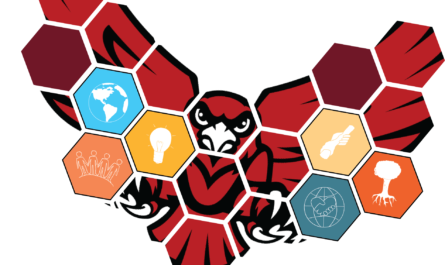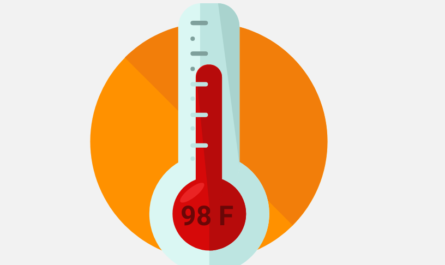by Athena De Groff &
Jessica Blackham
Editor in Chief & Social Media Editor
Cars don’t run without gas—they also don’t run on maple syrup. Our bodies, like cars, need proper fuel in order to function throughout the day.
“Food is the fuel for our body and if you put garbage in, it’s not going to help your body to perform at its very best,” said FACS teacher Auralee Brooks. “So if you want to have a high-functioning, high-performing body, you need to make sure that you eat well and give your body the right amount of calories and the right amount of nutrients.”
A nutritious diet starts out with eating a healthy breakfast every day. Of a group of NS students surveyed, only 22 percent eat breakfast daily. Although the school offers free breakfast for students every morning, many students choose not to eat for a variety of reasons.
“I’m so busy in the morning that I usually don’t have time to eat breakfast,” senior Sophie Peterson said. “When I do have time to eat breakfast, it makes me feel really sick throughout the day.”
Of the other 78 percent of students surveyed, over 20 percent never eat breakfast. Skipping breakfast before school can negatively impact a teenager’s day.
“Breakfast has its name for a reason––“Break the Fast,” said Snow College Nutrition Professor Vikki Masters. “You have not been eating for 8-10 hours; your body is ready for food and needs it to fuel your day. It has been proven that eating a healthy breakfast will create a healthier body weight, increase your academic performance, increase your mood for the better, and increase your energy levels.”
It is important to start out the day with a healthy breakfast, but throughout the day, teens should eat a diet that is rich in fruits, vegetables, and whole grains. Receiving proper nutrition helps teens stay physically and mentally fit.
“Not only does nutrition affect your physical well-being,” junior Tezra Frisk said, “but it also has a huge impact on your mental abilities.”
Good nutrition is beneficial for our bodies and cognitive ability, but there is no need to go to extremes and cut out all treats.
“I’m not one to say, you can’t eat potato chips, you can’t eat fries, you can’t eat cookies, you can’t eat cake,” Brooks said. “Because yes, you can include those in a balanced diet, but balance is the key.”
If a balanced diet is achieved, individuals can create a healthy relationship with food that doesn’t include guilt or negative body image.
“I believe that it helps create a healthy balance because I feel like a lot of teenagers will eat something unhealthy and then feel guilty about it,” Peterson said. “But understanding nutrition and eating food in moderation is so important for not only teenagers to understand but for everyone, because it helps us to make healthier choices and have healthy relationships with our bodies.”
In many families, healthy food is not a priority. Parents tend to choose the more convenient and affordable options, which are usually less nutritious than healthy, homemade meals.
“I feel what teenagers usually eat is what their parents eat,” Peterson said. “So if parents develop good habits and provide healthy meals, then teenagers will eat those healthy options instead of just turning to the store-bought processed food.”
Whether or not teens learn healthy eating habits at home, there is information available at school. NS students have the opportunity to take Food and Nutrition classes in high school, where they learn about nutrition, cooking, etiquette and other valuable skills. Foods and Nutrition 1 & 2 are elective courses, but are a great resource for teens who want to learn more about how to eat a healthy diet.
“I think it should be mandatory to at least take an intro to nutrition and learn how to cook because that’s a life skill everyone needs,” Peterson said.
The topic of nutrition applies to everyone, each individual should take the time to study how their body works, and what diet best fits their needs.
“I wish more students would take nutrition to understand how our bodies work, what nutrients we need, and what happens to our bodies when we eat junk,” Masters said. “As with anything in life, the more knowledge we have the more powerful we can become. Knowing what our bodies need and how they function with nutrients helps us make better diet choices.”
Learning nutrition information from reliable sources is important. Many sources online, as well as friends and family, may promote diets or trends that are detrimental.
“People are taking unnecessary supplementation which is creating an unhealthy toxic number of vitamins and minerals in our bodies,” Masters said. “We love our friends; we love our family members. But the only people we should listen to about taking dietary supplementation is our doctor.”
Fad diets, as well as just going without food entirely, are other misconceptions about proper nutrition.
“I think there are so many rumors and false knowledge out there about nutrition that many people get the wrong idea about it,” Frisk said. “For example, some people think that starving themselves will help them lose weight which is really really bad for you.”
Nutrition is a multi-faceted topic. There are many things you can learn about eating healthier, and all of the information available can be overwhelming.
“You cannot climb Mt. Everest in a day,” Masters said. “You shouldn’t change all of your bad habits in one day! Choose just one bad habit that you’d like to change and start slowly. Small changes over time create big results in the end. We must be patient with ourselves when we are wanting a lifetime of healthy habits.”



